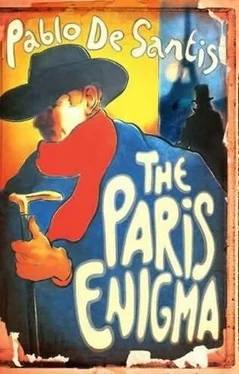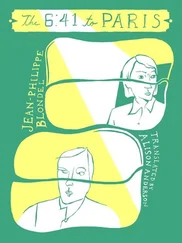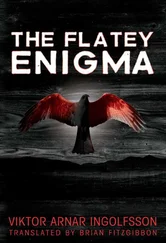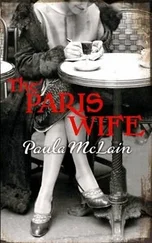“You all know the sibyl’s message: Know thyself. I walked back to my house, it was a melancholy walk: those old letters, locked up in a trunk, had filled me with sadness. One day we will all be just a bundle of letters stowed away. I suddenly remembered an episode from my life that I hadn’t thought of in years and which surely, had it not been for this unique case, would never have crossed my mind again. When I was thirty years old, I took the steamship that goes from Pireo to Brindisi. I was obsessed with a romantic problem and, in spite of the cold rain, wanted to be alone at the deck rail, far from the crowd inside. Soon I saw, only about ten feet away from me, another young man who was as alone as I was. He had been a schoolmate of mine, and had christened me with a nickname that I won’t reveal. It tormented me for years. In time, however, I managed to forget everything: the teasing I suspected my classmates of, the boy who invented the nickname, even the nickname itself. The ancient Greeks spoke of the art of memory; but I believe that there is only one true art: forgetting. I had erased it from my mind, but when I saw my former schoolmate just those few feet away, the hatred rushed back to me, intact. He still hadn’t seen me, and at that moment I resolved to kill him. Those crimes that are decided in a split second, ‘crimes of passion,’ are, in many ways, the most premeditated of them all: they take a lifetime to foment.
“My former chum was a scrawny man, and I, as you can see, while short am quite strong. I could easily throw him over the rail and no one would notice. No one would hear his screams amidst the sea’s crashing waves. I was almost upon him when a young girl came running over, calling out to him. My old enemy, who was obviously the girl’s father, answered her call and started toward her. Only then did I realize what I had been considering. My enemy disappeared from my sight and my life forever.
“The hotel guests, held against their will, were finally allowed to leave. Hilarion was packing his suitcase when I went to see him. I told him the story of my trip to Brindisi. He listened patiently, without interrupting. When I finished, he made a gesture of acceptance, not defeat, and revealed the truth to me.
“Basilio Hilarion was having dinner, alone, in the hotel’s dining hall when he noticed that a man near the window was his old childhood friend. Throughout the dinner he watched the man eat and drink voraciously. He, on the other hand, couldn’t choke down anything. Hilarion couldn’t take his eyes off him. He was not as fascinated by this man that devoured everything in sight as he was by the discovery, in his own heart, of a fury that was as alive on that day as it had been forty years ago. And now Hilarion knew that his entire life (the constant traveling that allowed him to escape his marriage, his interest in astronomy, a lover that had begun to bore him) had been nothing more than an accumulation of unreal things, once he compared it to the clarity of that hatred. In that fury there was something pure and true that was more real than his everyday life. That hate was him.
“For many years, the fabric merchant’s offense (Hilarion never said what it was) had given him chronic insomnia. In time he learned to sleep well, but that night his insomnia returned. He realized that, almost as if it were a game, he had to plan the crime: he stole a sharp knife from the dining room and followed the victim to his room, but did nothing. This is all a joke, he told himself when he returned to his own room, I’m no killer. He tried in vain to sleep, but he just tossed and turned. His usual cures were useless: eating an apple, drinking a glass of milk, taking a hot bath, taking a few drops of an amber-colored opiate he always carried with him. All useless. At four in the morning, he slipped past the sleeping night watchman, stole the key, went up to room thirty-six, and murdered his old friend with one thrust of the blade. He felt guilty about only one thing: he should have told him why he was killing him. It seemed fair that the victim know that his execution was a consequence of his prior actions. When he returned to his room, Hilarion took off his bloody clothes, which he got rid of the next morning, and slept soundly.”
“We appreciate the gift of Madorakis’s story,” said Arzaky. “The next time I travel to Warsaw and come across my old classmates from the gymnasium, I’ll make sure not to turn my back on them. Who will we hear from next?”
Tobias Hatter, the detective from Nuremberg, came forward and placed a child’s small cardboard drawing slate on the table. Then he scribbled on it with a wooden stick. Next, as if it were a magic trick, he removed the sheet of cardboard from its frame, and returned it to the table. The scribble had disappeared.
“Last year a manufacturer of notebooks and paper from Nuremberg brought these boards onto the market. They called them Aladdin’s blackboard: as you can see, one can write on them without ink and everything erases immediately. The trick isn’t in the little stick, but in the board itself: it is a sheet that is put in contact with another black sheet behind it: at the points where the two sheets touch, a drawing appears on the surface. Now, if we take this device apart (don’t be alarmed; it costs only a few cents) we see the black acetate sheet. All the marks disappear, but the deepest ones leave a trace on this black page. Some of the erased drawings leave a mark, and those marks together form a secret drawing. Thus, gentlemen, is the relationship between enigmas and their revelation. On the surface, we incessantly gather facts, clues, and words. Who among us can say they’ve never felt apprehension over the vast amount of trivia that crowds our sight? In the theater, detectives always say, ‘Good heavens, the killer has left no clues,’ but in real life that’s not what happens: we are nearly driven crazy by the quantity of clues and the task of sifting through them. And we, slaves to method and intuition, sometimes scratch the surface filled with inconsequential marks-those marks the police earn their salary on-in order to discover the hidden truth.
“I learned the rudiments of my trade in Nuremberg. There is a street in the old quarter where the bulk of the secondhand book trade is concentrated. One of those stores is called Rasmussen’s; I was twenty-two when the owner, Ernst Rasmussen, was shot and killed. His son had been a buddy of mine in the army; we were in the same detail. I had never solved a case, I foresaw a military future for myself, but I was very fond of riddles-which I made up and solved easily-and perhaps that was why my friend called me to help him figure out who had murdered his father.
“Old Rasmussen had died of a bullet to the chest. The killer had surprised him after midnight during a raging thunderstorm. The bookseller usually didn’t work so late, but he had said that he would stay to examine a batch of religious books he had bought from the widow of a Lutheran pastor. Fatally wounded, Rasmussen had grabbed a book with both hands, as if he wanted to take some reading material along on his trip. I asked his son Hans about this gesture, and he responded, ‘My father dealt in all kinds of old books, but his favorites were the children’s stories. He was very fond of the Brothers Grimm, the second volume of the 1815 edition. In spite of his violent death, I like to think that my father was showing a final gesture of his love for books.’
“His son didn’t share that love; he had always preferred less cerebral activities. It was clear that he was destined to follow in the footsteps of so many adventurous types who end up ruining their lives over a woman, or at the gambling table in Baden-Baden. The kind that happily receive the news that war has been declared, because in those distant skirmishes they believe they have found some sort of order, a destiny that they are incapable of creating with their own actions. So Hans knew little about his father’s business, and he couldn’t tell me if anything important was missing. I searched for clues: there was nothing out of the ordinary, except for the muddy footprints left by the killer, the bookseller himself, and the police. I sat in a chair facing the table where the bookseller had been killed and I began to f lip through the book by the Brothers Grimm.
Читать дальше












